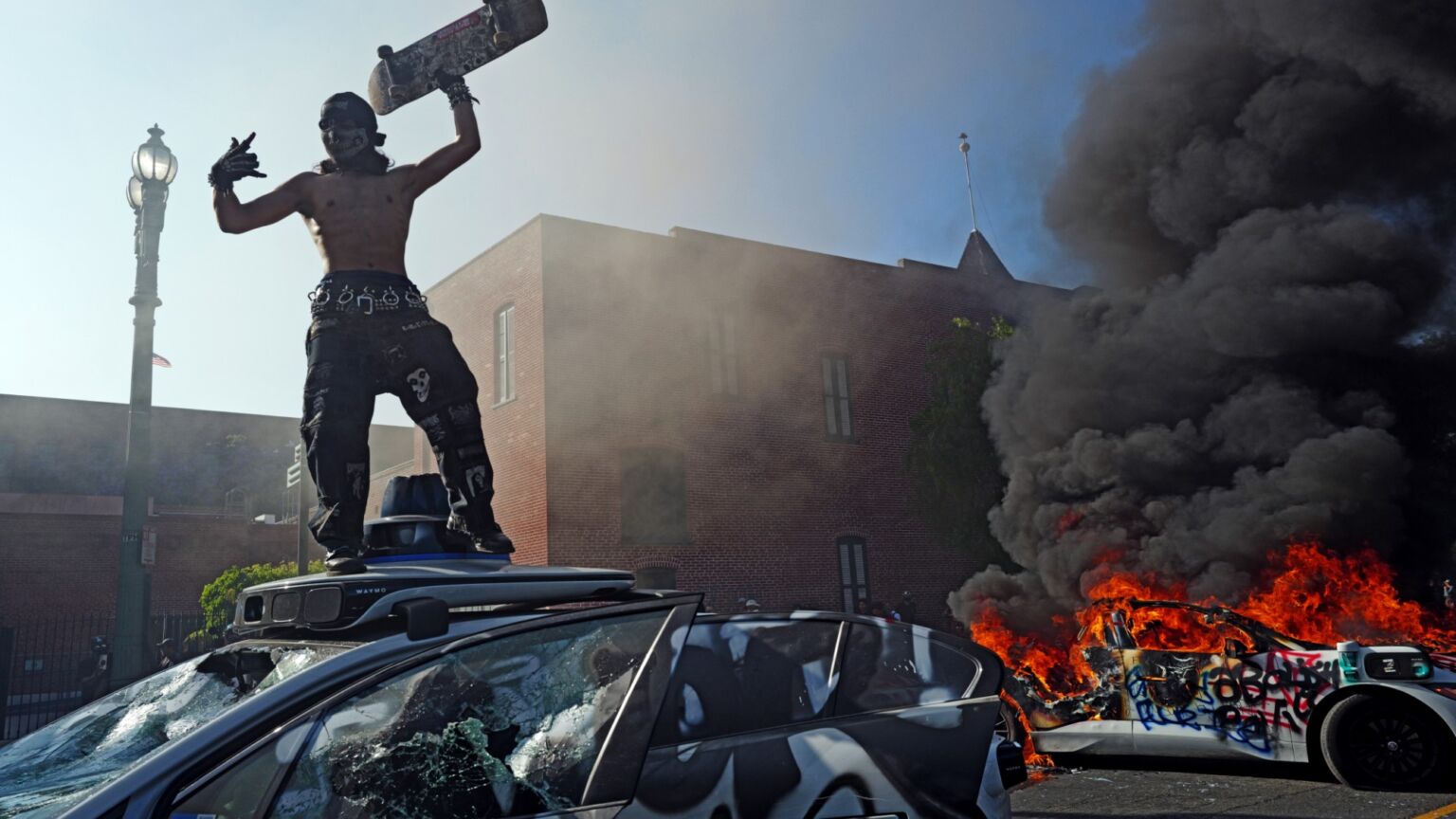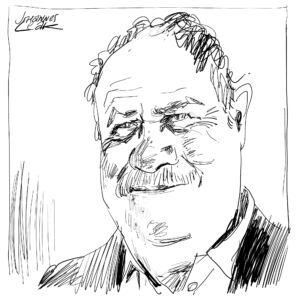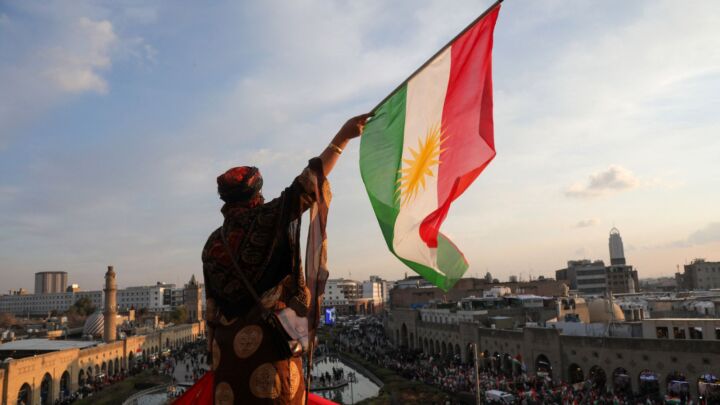
Los Angeles has fallen
How can riot-rocked LA be trusted to host the Olympics?
Want unlimited, ad-free access? Become a spiked supporter.
Los Angeles is burning again, and it is not the Olympic flame. After riots in 1965, 1992 and 2020, Angelenos are bearing witness once more to a rash of violent unrest. US president Donald Trump deployed the National Guard at the weekend and he has since called in the Marines, too. Trumpian lunatic-in-chief Steve Bannon even suggests these riots augur a domestic ‘World War 3’.
Reality may not be quite so grim, but it is understandable if the world feels less than enthused about flocking to LA for the Olympic Games in 2028 – or the World Cup in 2026. Yet come they will.
Ahead of the Paris Olympics last year, the French capital was similarly disrupted by sometimes violent protests. And as happened there, a huge security presence will be needed for LA. Indeed, the Paris games required 45,000 police officers, 10,000 soldiers and 22,000 private security staff. If Kamala Harris were in the White House, substantial aid would surely flow to LA to allow it to mount an operation on a similar scale. But now the city must petition the mercurial and spiteful Trump for security assurances.
LA28, the organisation responsible for organising the games, claims it has secured enough sponsorship and television deals to meet its needs – and that had better be true, given the city’s fiscal situation. LA today lacks the entrepreneurial dynamism that once defined its remarkable rise. Fortunately, the city’s sporting legacy – notably its two previous Olympics – has bequeathed it the stadia and much of the infrastructure needed to host the world, and even to protect it.
But unless vast sums are spent on a Potemkin-like makeover, the world will also witness what many of us residents have long suspected – that the city is slipping into an inexorable decline.
Things were very different in 1932, when LA first hosted the Olympics. With a population of 1.2million – a third of today’s population – LA was still fledgling. But the 1932 games served as a wake-up call to the world that LA was on its way to becoming one of the planet’s great cities.
I covered the run-up to the second LA Olympics, in 1984. It was arguably the most successful games in history, despite Russia’s Cold War-era boycott. This was LA at its peak – with native son Ronald Reagan in the White House, and the defence, aerospace, housing and entertainment sectors all booming. ‘LA’s the place’, as the promoters then put it, and few could deny the truth of it.
Some may hope the new games will rescue the city from its doldrums. But numerous studies show that hosting an Olympics offers, at best, fleeting economic benefits – and often leaves enormous burdens. It can provide an opportunity to make a statement, heralding the rise of cities such as Berlin under the Nazis in 1936 or Beijing under the CCP in 2008. But staging an Olympics in a city plainly in decline seems a fool’s errand.
Rather than a model for the future, Los Angeles today offers a masterclass in urban dysfunction. Drive through the streets of the South Side or along Central Avenue – historically black LA’s main thoroughfare, now predominantly Hispanic – and the ambience increasingly resembles that of Mexico City or Mumbai: cracked pavements, dilapidated buildings, outdoor swap-meet markets and food stalls serving customers, much as one would see in the developing world.
Homeless encampments are scattered throughout the city. In a friend of my wife’s neighbourhood, close to where we once lived, homeless people loiter in supermarkets and eat in the aisles. Others harass shop owners and tap directly into the city’s power grid. Many workers, particularly immigrants (both legal and undocumented), earn very little.
Once a middle-class haven with a broad industrial base, LA now has the highest poverty rate in California – and among the worst nationwide. Failing schools, dilapidated parks and an exodus of residents and firms suggest the city’s long-term prospects could be bleak.
Once known as ‘the city that grew’, LA has lost population since the early 2010s. By 2060, according to the state’s finance department, Los Angeles County will experience no growth – and could shed well over a million residents. The young – the lifeblood of any growing city – are already leaving, some 750,000 in the past decade alone. People may still come temporarily, but few stay to raise children. LA now has the second-lowest birth rate among the 53 largest US metropolitan areas, according to the American Community Survey. Younger Angelenos, according to one UCLA poll, are even more disillusioned than their elders.
Ironically, the foreign-born – long the focus of progressive concern – are also departing. For decades, LA, with over three million immigrants (twice as many as any other county), was energised by this influx. But life has soured even for many who arrived having been attracted by its ‘sanctuary city’ status. Since 2010, long before the rise of Trump, LA’s foreign-born population has been falling, while that of Texas or Florida has grown substantially.
This reflects a harsh reality: LA’s economy no longer delivers decent wages. Latino workers, once cost of living is considered, fare worse here than in most American cities. Home ownership rates for both Latinos and African Americans are among the lowest in the US. Neither the business community nor the political elite seems capable of reversing the trend.
That decline of the business community, which proved so pivotal in driving past Olympic successes, is palpable. In 1984, LA County boasted a strong and highly motivated business elite, with 12 Fortune 500 firms. Since then, the region has lost many of its oil and aerospace giants, along with its largest banks. Today, the Fortune 500 count stands at just seven – only one of them within city limits, on the outer edge of the San Fernando Valley.
The 1984 Olympics was led brilliantly by Peter Ueberroth, himself a successful businessman who managed not only to deliver an incident-free games, but also to turn a profit. Though the city was run by a Democrat, Tom Bradley, he was also a former police officer and was not about to allow criminal elements (always a force in LA) to disrupt the games. Organised labour also backed Bradley, as well as the corporate elites, for whom many union members worked.
Today, the contrast is stark. Few corporate leaders possess the cojones to address the reasons for LA’s precipitous economic decline. This is most apparent downtown, an area that has ‘benefited’ from vast transit developments, tax incentives and a new convention centre. Yet, despite billions spent, it remains strewn with encampments and sometimes fire-damaged buildings. The empty, never completed luxury high-rises there have become renowned among tourists for their elaborate graffiti.
Even Hollywood appears to have lost its lustre. It once epitomised American aspirations, and largely reflected mainstream values of family, romance, patriotism. It now caters to a narrower, more woke audience, often with ideologically driven content.
It’s no surprise, then, that jobs in the entertainment industry are being lost to both technological developments and more generous incentives elsewhere. Some entertainment executives now even suggest that LA could become ‘another Detroit’.
Michael Kelly, director of the Drucker Institute at Claremont McKenna College, notes that nearly every basic industry – from manufacturing to finance and business services – has shed jobs or at best stagnated since 2019. Only education and healthcare, both heavily subsidised by government, have grown meaningfully during the same period. Had LA matched the national pace of job growth, Kelly estimates it would have added 300,000 more jobs.
This decline has taken place in a city that once boasted a strong, dominant business class. Today’s business leaders – increasingly inheritors of wealth and middlemen – seem uninterested in reversing decline. Many, Kelly argues, prefer to chase prestige projects, like the massively successful Dodgers or the Lakers, rather than focus on improving economic and educational opportunities for young Angelenos, or keeping public parks safe. ‘They don’t care about fixing MacArthur Park or helping the South Side’, Kelly concludes. ‘All they care about is the Olympics.’
The business elites, the high-priced lawyers and the many fixers, can nurture their LA idyll, living in secure, ultra-pricey places like Brentwood (home to Kamala Harris), the Hollywood Hills or out further in Malibu or Palm Springs. They have stood by as the city’s political culture has nurtured a criminal class, strengthened by unrestricted immigration and often feeble law enforcement.
Once obsessed with growth, even to the detriment of the city’s natural environment, LA’s political establishment is now dominated by people who barely, if at all, support capitalism. While cities such as San Francisco, Houston and even New York shift back towards the political centre ground, Los Angeles in 2022 elected Mayor Karen Bass, a lifelong leftist who travelled to Castro’s Cuba as part of the Venceremos brigade. In 2016, upon Fidel’s death, she issued a praise-filled obituary to ‘El Comandante’. Her Castroite bona fides may have hurt her when she was briefly considered for Biden’s running mate – a position that went to Kamala Harris.
As the progressives have gained close to total control of LA, a wave of Chicago-style corruption has followed, with multiple city councillors and commissioners arrested. Bass impressed few during last year’s devastating wildfires, and the city’s rebuilding effort has been abysmal at best.
Under pressure from militant public-sector unions, Bass has kept business at bay with permit costs – high even by Californian standards. The last LA Olympics turned a profit, but if this one does not, the city may be forced to shoulder expenses it can scarcely afford. This year alone, Bass’s administration announced a budget deficit of over $1 billion – driven largely by surging public-sector wages.
With just three years until the Olympic Games open, the city’s progressive leaders seem to lack the will to protect their own constituents. Bass and California governor Gavin Newsom, along with Harris, have opposed the deployment of the National Guard, arguing, against all evidence, that the riots had been mostly ‘peaceful’ .
It may yet worsen. Bass faces mounting pressure not from business, but from radicals to her left – notably the fast-rising Democratic Socialists of America, a hard-left, anti-business, anti-Israel faction with four seats on the 15-member city council.
Those disappointed by Bass’s weakness on security may not have seen anything yet. The new wave is embodied by Isabel Jurado, a DSA activist who not only seeks to defund the police, but dreams of its abolition. Even more troubling is the rise of pro-Hamas agitators – visible in the current anti-ICE protests – and a radical fringe that is well-funded, well-organised and increasingly influential.
It is rare to hear a public voice push back against random violence. In the months leading up to the latest unrest, there were countless incidents including violent gangs of kids, vandalism and theft throughout the city, particularly downtown. Criminals are now so bold that they have started stripping copper wire from street lights, leaving some parts of LA in the dark. You don’t have to support Trump’s crude, draconian approach to want to see streets cleared of thugs, imported or otherwise. Yet the response of the city’s elites – political and corporate – seems to boil down to ‘party on, dude’.
Perhaps LA’s leaders are right. Perhaps the city will manage to pull off another great Olympics, provided enough security is deployed. But a recovery of LA’s former cultural and economic dynamism will require far more than fanfare and fireworks. It will demand precisely the kind of hard work this city has shirked for decades.
Joel Kotkin is a spiked columnist, a presidential fellow in Urban Studies at Chapman University in Orange, California, and a senior research fellow at the University of Texas’ Civitas Institute.
£1 a month for 3 months
You’ve hit your monthly free article limit.
Support spiked and get unlimited access.
Support spiked – £1 a month for 3 months
spiked is funded by readers like you. Only 0.1% of regular readers currently support us. If just 1% did, we could grow our team and step up the fight for free speech and democracy.
Become a spiked supporter and enjoy unlimited, ad-free access, bonus content and exclusive events – while helping to keep independent journalism alive.
———————————————————————————————————————————–
Exclusive January offer: join today for £1 a month for 3 months. Then £5 a month, cancel anytime.
———————————————————————————————————————————–
Monthly support makes the biggest difference. Thank you.











Comments
Want to join the conversation?
Only spiked supporters and patrons, who donate regularly to us, can comment on our articles.